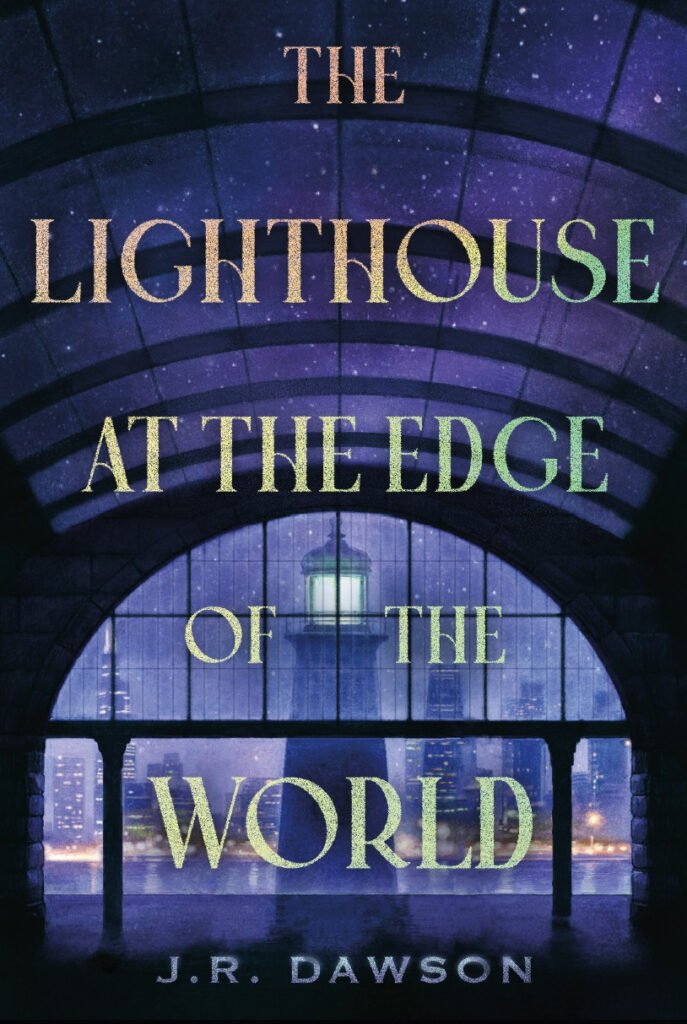A Heartfelt Journey Beyond the Veil: A Review of The Lighthouse at the Edge of the World
There’s something undeniably mesmerizing about stories that bridge the realms of life and death, and when I stumbled upon The Lighthouse at the Edge of the World by the talented author, [Author’s Name], I felt an instant pull. Perhaps it was the evocative title or maybe the tantalizing premise of guiding souls across the Veil that captured my imagination. I was grateful to Pan Macmillan and NetGalley for providing me with an e-arc, and all thoughts that follow are truly my own.
At the center of this poignant tale is Nera, the Station Master’s daughter, existing in a liminal space—trapped between the living and the dead. She’s been taught to guide souls, to maintain the light of the Station, and to stay emotionally detached from the entities crossing her path. Yet when Charlie unexpectedly appears, seeking closure for her sister lost to the depths, Nera’s world shifts. In their poignant quest, the novel touches upon timeless themes of grief, love, and the confrontations we have with our own mortality.
One of the most compelling aspects of this narrative is how it artfully weaves mythological elements reminiscent of Orpheus and Eurydice into its fabric. There’s a tender romance that flourishes against a backdrop of heavy loss, which spreads a sense of warmth amidst the haunting grief. Nera’s journey toward reclamation of both herself and her destiny is beautifully wrought with moments that truly tug at the heartstrings. For me, her compassionate nature shone brightly, and I was in awe of how her character developed from a mere observer of death to a young woman who truly embraces life.
That said, the pacing offered a mixed bag of emotional highs and slower dips. While the lush prose often painted vivid images and elevated emotional states, the plot didn’t seem to gather momentum until about halfway through, which left me longing for more immediacy in the unfolding story. I found myself occasionally distracted by lyrical musings that took precedence over driving the plot forward. While I adore rich, poetic language, there were times when the feeling verged on stagnation, which could be a concern for readers craving a more structured narrative.
Equally, some character arcs, particularly that of Nera’s father playing a crucial role in the narrative, felt underexplored. His emotional distance juxtaposed with Nera’s journey left me wanting deeper engagement. The flashbacks in his journal held promise, but their late arrival limited their impact. I wished for a few more threads to weave his story closer to Nera’s experience.
Despite its minor flaws, what truly shines in The Lighthouse at the Edge of the World is its exploration of the burdens we carry—the ghosts both peaceful and haunting. Charlie’s journey through guilt and sorrow is hauntingly depicted, making the reader feel the weight of every emotional exchange. It’s an exploration of learning to navigate life after loss that resonated with me deeply.
Overall, I would recommend this book to anyone who enjoys contemporary fantasy that bears the weight of emotional complexity. If you’ve ever grappled with grief or the echoes of what’s left unsaid, you may find solace here. While I wished for a slightly tighter narrative, the heart and soul of the story left a lasting impact. It’s a tale filled with tenderness and a dash of love, a balm for those who seek both beauty and meaning in their reading. After all, who wouldn’t want to be greeted by a magical dog guiding us to where we’re meant to be?
In the end, this poignant journey reminded me of the delicate dance between loss and love, and the important realization that to live fully is to embrace both.
Discover more about The Lighthouse at the Edge of the World on GoodReads >>







